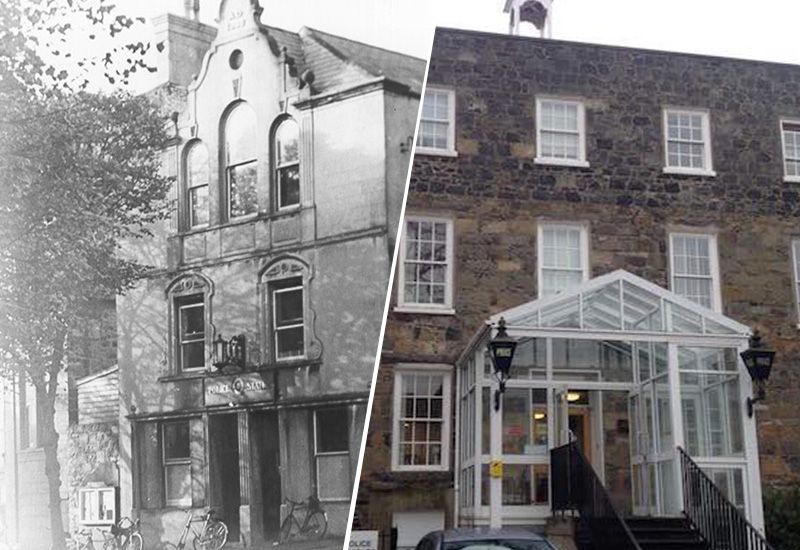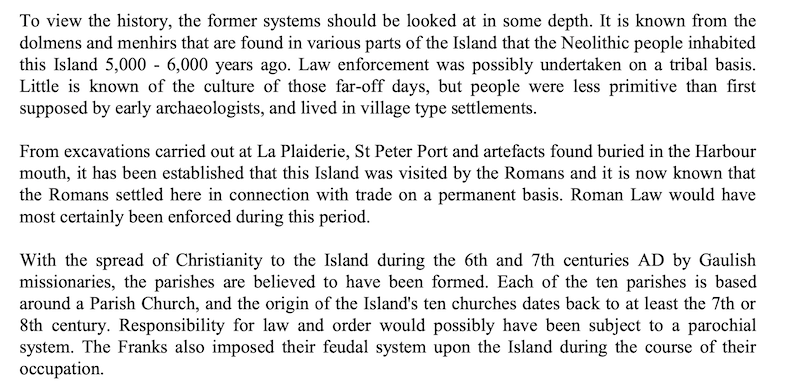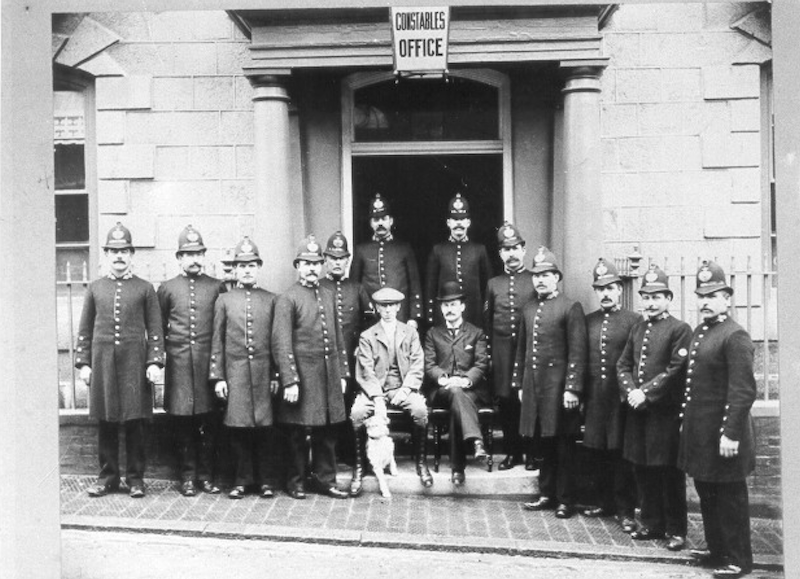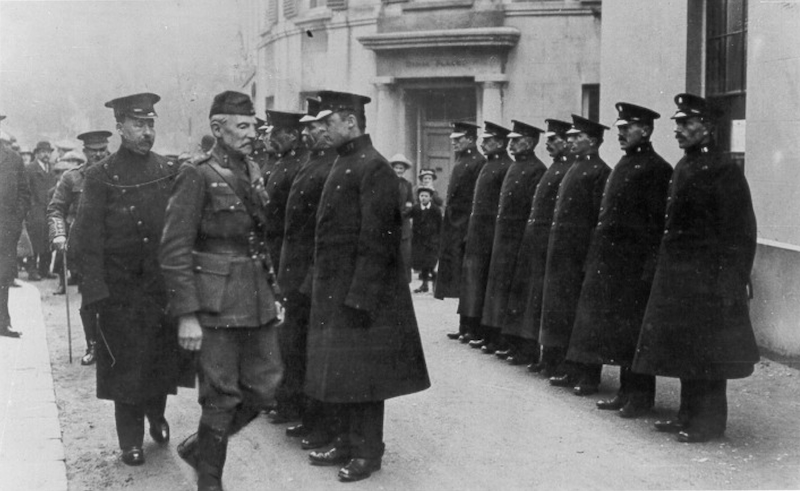


Guernsey Police are celebrating the force's centenary this year, with today marking 100 years since the first Island Police Committee was appointed by the then-States to oversee law enforcement.
The history of policing in Guernsey is thought to go back thousands of years though, with the Romans known to have settled here, meaning "Roman Law would have most certainly been enforced during this period".
Extensive research has been done into the history of the island police force with a dedicated page on the Guernsey Police website, HERE.

Pictured: Part of the history of Guernsey Police, as featured on the force website, HERE.
The Parish Constables system has its history in law enforcement with each of the island's ten parishes based around a Parish Church, from a time when "responsibility for law and order would have been subject to a parochial system".
In 1778, the parishes collectively asked the Royal Court to put a legal limit on the period of office which a Parish Constable served, which was set at no more than three years.
Within 50 years, there were growing fears over "increasing crime and public disquiet", so in November 1838 St Peter Port appointed twelve Special Constables "to act for a limited time because of the number of robberies which were occurring in the town".
The Guernsey Police website report on the history of the force says "the term 'robberies' included breaking and entering offences. From the Occurrence Books of 1838, which are filed in the archives of the Constables' Office of St Peter Port, it appears that the services of the Special Constables had a marked effect in restoring law and order to the town of St. Peter Port."
As the parish continued to grow rapidly, more resources were needed to keep law and order in St Peter Port, leading to a request for a paid police force for the town, made by the Constables and Douzaine, in 1853.
That was agreed and £160 was allocated to pay for four Assistant Constables for a one-year trial period.
Those first paid police officers had to deal with some of the most significant crimes in the island's history, including the murder of Madam Sujan during 1853, which led to the arrest, trial, conviction and subsequent execution of John Tapner in 1854.
He was the last person to be publicly executed in Guernsey, and from the entries in the Occurrence Book "the public execution had the air of a carnival with many persons travelling from Jersey to witness the event".

Pictured: Guernsey Police in one of its earliest incarnations, during the late 1800s.
Successful investigations, including the Madam Sujan murder case, led to the expansion of the paid police scheme, with six employed by 1881, and 12 by 1902.
Those paid Town officers worked alongside the honorary force, with some challenges to that system, until war loomed in 1914 and the States decided to create a central Police Force to ensure island safety.
This new Island Police Force started duty on 14 March 1915, with one Inspector, two Sergeants, two Corporals and eleven Constables, and six Constables temporarily transferred from the St Peter Port Police, giving a total strength of 22.
As the Great War took hold, it was agreed there were too many different police forces in Guernsey so immediately post war it was decided that one body should be created to oversee law enforcement.

Pictured: Guernsey Police pictured during the First World War.
The Island Police Committee was therefore appointed by the States on 4 February 1920 and held their first meeting on 10 February that year.
The mandate of the duties and functions of the Island Police Force is set out under Article I of the Order in Council of 1919, which states the following:
"There will be established at the cost of the States, a salaried Police Force for the whole Island, which will exercise the following functions in place of the Constables of the Island:
This new Force commenced duty on 10 April 1920 and its official duties remain largely unchanged to this day. The police force was merged with the Guernsey Border Agency in the last decade to ensure safety for the island, and the Bailiwick as a whole.
In 2018 Guernsey Law Enforcement employed 151 police officers, 56 GBA officers, and 94 civilian staff.
During 2020 a number of events are planned to mark the centenary of Guernsey Police, including a Parade and Church service on 21 April, marking 100 years since the force came into being as a statutory basis.
The guest of honour will be the Commissioner of the Metropolitan Police, Dame Cressida Dick, DBE QPM.
Pictured top: The first Guernsey Police Station and the current one. Historic images all courtesy of Guernsey Police.
Comments
Comments on this story express the views of the commentator only, not Bailiwick Publishing. We are unable to guarantee the accuracy of any of those comments.